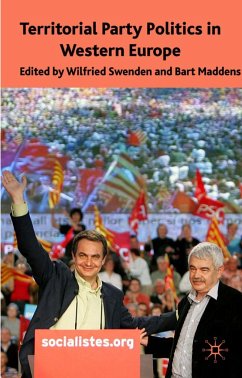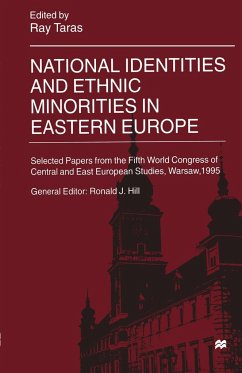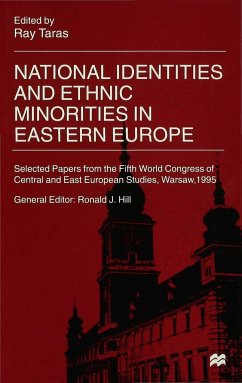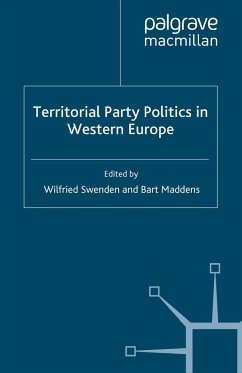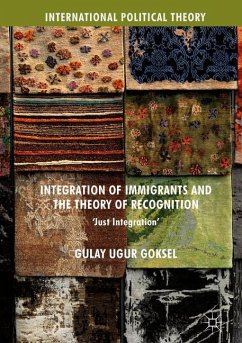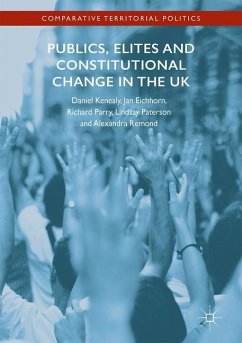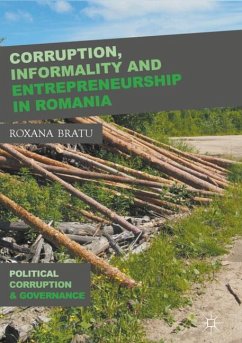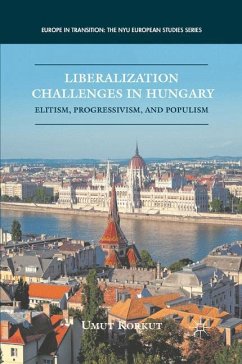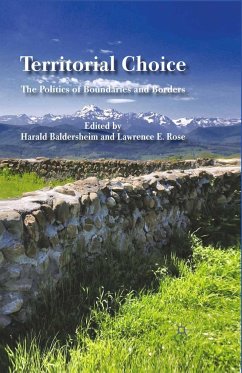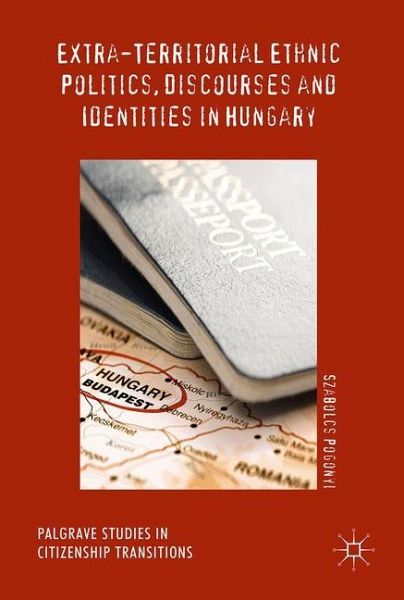
Extra-Territorial Ethnic Politics, Discourses and Identities in Hungary
Versandkostenfrei!
Versandfertig in 6-10 Tagen
76,99 €
inkl. MwSt.
Weitere Ausgaben:

PAYBACK Punkte
38 °P sammeln!
This book explores the causes and consequences of the discursive and legal construction of the Hungarian transborder nation through the institutionalization of non-resident citizenship and voting. Through the in-depth analysis of Hungarian transborder and diaspora politics, this book investigates how the political engagement of non-resident Hungarians impacts inter- and intra-state ethnic relations. In addition, the research also explores how institutional changes and shifting discursive strategies reify and redefine ethnic belonging narratives and the self-perception of Hungarians living outs...
This book explores the causes and consequences of the discursive and legal construction of the Hungarian transborder nation through the institutionalization of non-resident citizenship and voting. Through the in-depth analysis of Hungarian transborder and diaspora politics, this book investigates how the political engagement of non-resident Hungarians impacts inter- and intra-state ethnic relations. In addition, the research also explores how institutional changes and shifting discursive strategies reify and redefine ethnic belonging narratives and the self-perception of Hungarians living outside the country. The research uses a multidisciplinary qualitative methodology which includes institutional (historical, rational choice and sociological) analysis, discourse analysis as well as interpretive methods. Through the inventive application of multiple methodologies, the book goes beyond the mostly institutional/legal analysis dominant in the study of citizenship.





